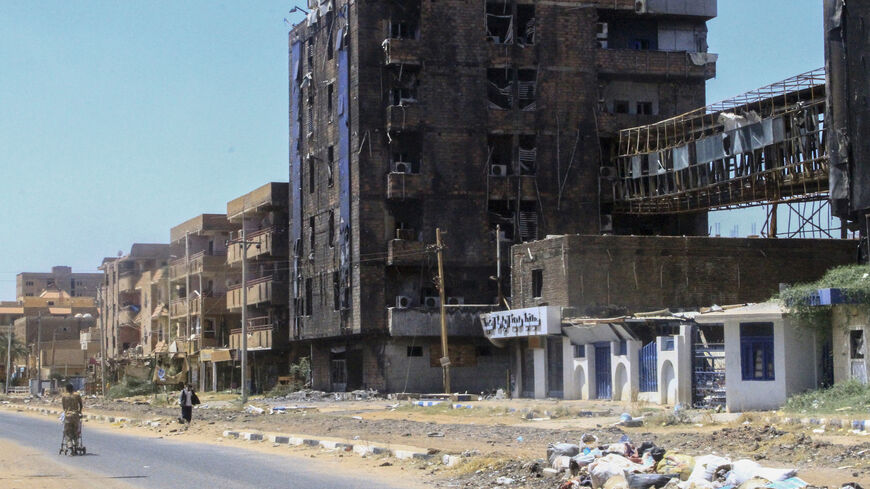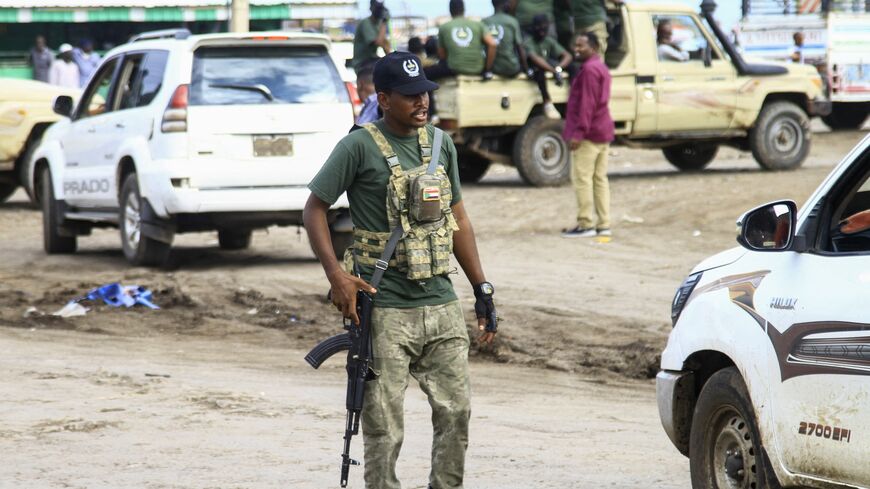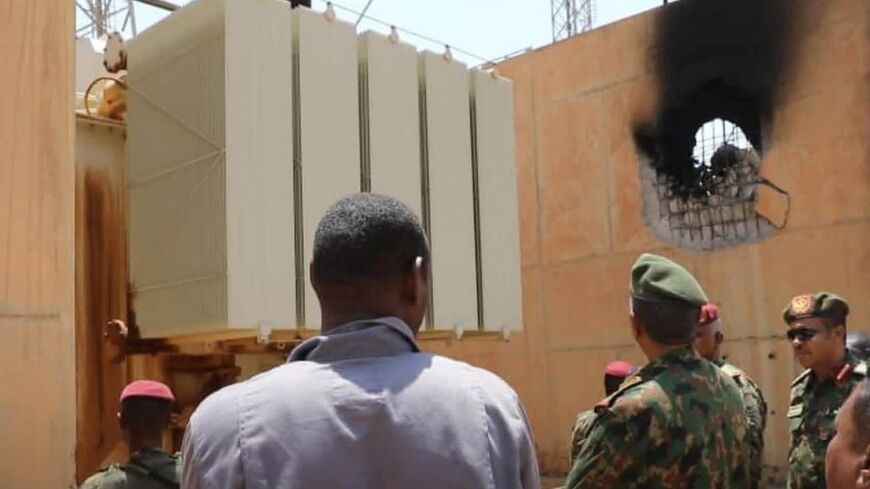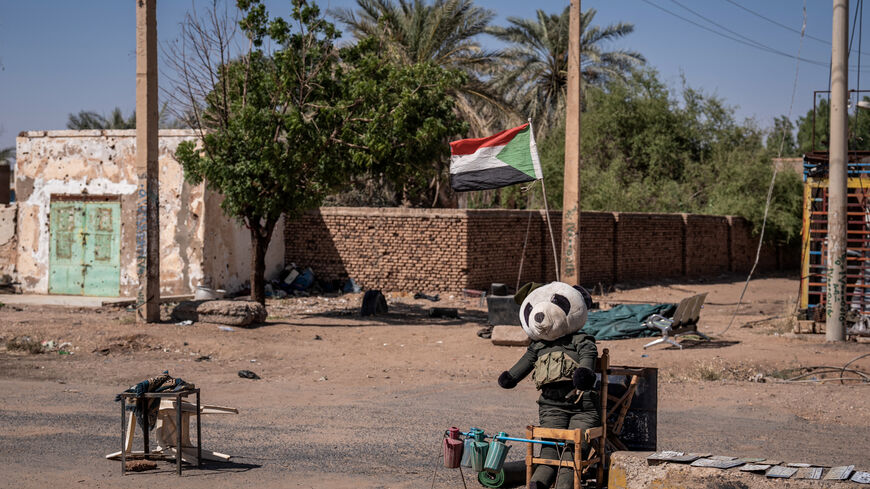Battle for Khartoum at tipping point as Sudan military advances
After years of fighting between Sudan’s Rapid Support Forces and the Sudanese Armed Forces, the two groups’ battle for the capital city of Khartoum could be coming to a head.
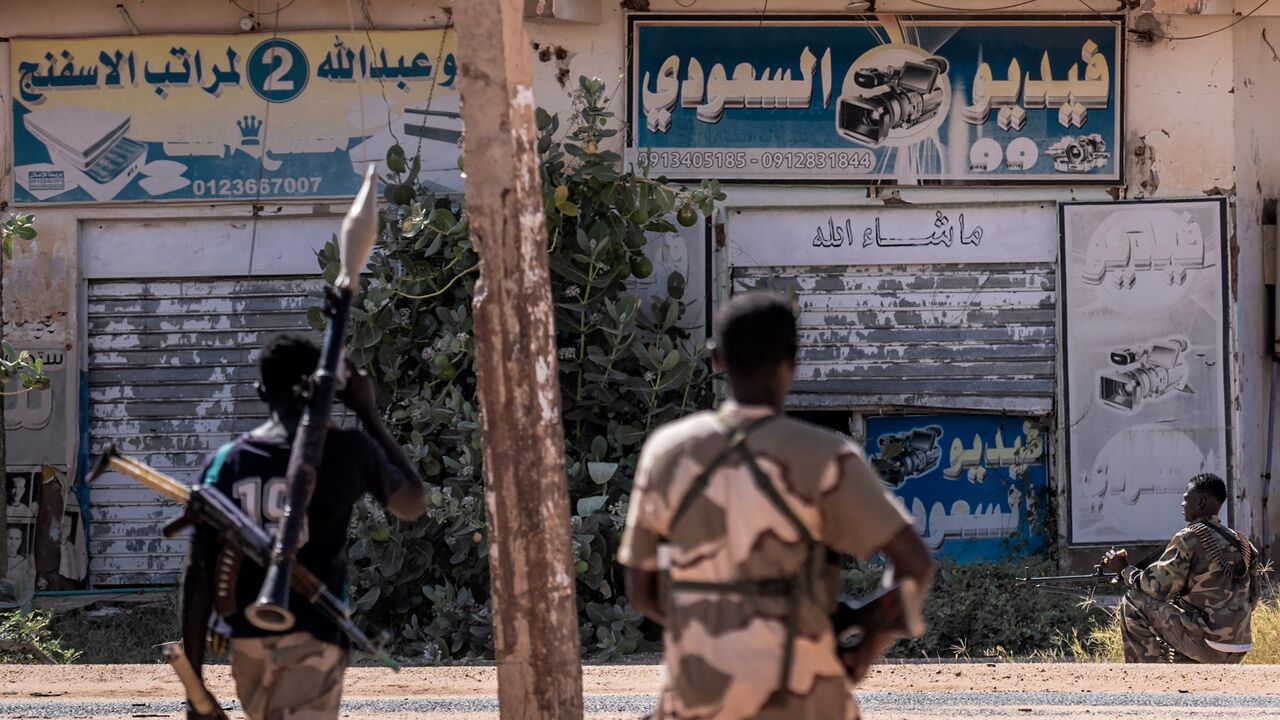
The Sudanese Armed Forces is quickly gaining territory in Khartoum, indicating that a yearslong battle against the Rapid Support Forces in Sudan's capital city could be reaching a tipping point.
What happened: The SAF said on Monday that it had captured the village of Al-Aylafun and a nearby military camp, just 30 kilometers (18 miles) east of Khartoum proper.
#Sudan 🇸🇩: #SAF military forces have captured the village of Al-Aylafun and its nearby military camp as they continue advance towards #Khartoum alongside the banks of the Blue Nile.#RSF will find itself cornered in Haj Yousif in a matter of days at this pace. pic.twitter.com/h1PqTXhc4c
— Thomas van Linge (@ThomasVLinge) February 3, 2025
The escalation in Khartoum comes after months of the SAF being besieged by the RSF at an Armored Corps base in southwestern Khartoum. The SAF broke the siege on Jan. 24. Now, with the siege broken, it seems RSF lines are collapsing, which could lead to a complete withdrawal of RSF forces from the city.
The RSF has been showing cracks since early December. On Dec. 7, the RSF reportedly retreated from several neighborhoods in Omdurman, a city directly opposite Khartoum across the Nile.
Meanwhile, after an offensive launched in central Sudan just weeks ago, the SAF is making significant advances into and effectively reclaiming the state of Al Jazirah. This morning, Sudan Tribune reported that a top RSF commander, Abdallah Hussein, was killed in an airstrike in al-Kamlin, a district in northern Al Jazirah. The SAF on Monday also said it captured the village of Meheiriba, around 60 kilometers (37 miles) southeast of al-Kamlin.
Control of Khartoum — Sudan’s capital and former industrial and economic center — could be crucial for the SAF in turning the tide of the war. The RSF has maintained control over most of Khartoum since the civil war began.
Background: The battle for Sudan’s capital city has been raging since April 2023, when the RSF seized the Khartoum International Airport, the presidential palace and several military bases in the city. The fighting has since spread to at least 14 of Sudan’s 18 states.
The RSF, a militia that previously fought alongside the Sudanese army under longtime dictatorial President Omar al-Bashir in the early 2000s, is estimated to have over 100,000 fighters. In 2015, the RSF was granted the status of a “regular force” by the Sudanese parliament under Bashir, giving the group legal legitimacy.
In 2019, the RSF assisted in a military coup that ousted Bashir from his 30-year rule. And in October 2021, the RSF participated in yet another coup that sparked a new movement of pro-democracy demonstrations across the country.
The SAF and pro-democracy groups have demanded for years that the RSF join the country’s regular military, but the RSF has not done so. A set of negotiations on the issue was scheduled for April 1, 2023, just before the conflict broke out.
Both the RSF and the SAF have been accused of war crimes, and in early January, the US State Department announced that the RSF’s atrocities in Sudan’s Darfur region amounted to genocide and placed sanctions on RSF leader Mohamed Hamdan Dagalo, also known as Hemedti. Just a week after announcing sanctions on Hemedti, the US imposed sanctions on SAF leader Abdel Fattah al-Burhan.
In November, a report from the London School of Hygiene and Tropical Medicine estimated that 61,000 people had died in the state of Khartoum, one of the states most affected by the war — roughly 40% of whom were killed as a direct result of the violence. Last May, US special envoy for Sudan Tom Perriello said that the total death count across the country could be as high as 150,000.
Sudan’s war has escalated into one of the world's worst humanitarian crises, with more than 11.5 million people internally displaced and over 3.3 million having fled the country, according to a January United Nations report. In 2024, over half of the Sudanese population experienced catastrophic hunger.
Know more: New concerns have emerged regarding Sudan’s dire humanitarian situation after the Trump administration announced it was freezing funding and halting the operations of the United States Agency for International Development. USAID programs are crucial for Sudan, with the US being the largest donor of humanitarian aid to the country, sending more than $1.4 billion in humanitarian aid from October 2022 to June 2024. Experts on Sudan have raised alarm bells about how a gutting of USAID could affect hundreds of thousands of Sudanese people in urgent need of food and medical aid.
Billionaire businessman and Trump's right hand, Elon Musk, posted on X Monday, saying that USAID is “a radical-left political psy op” and said in a live stream on X that the agency needs to be “shut down,” noting that the president “agreed.”
